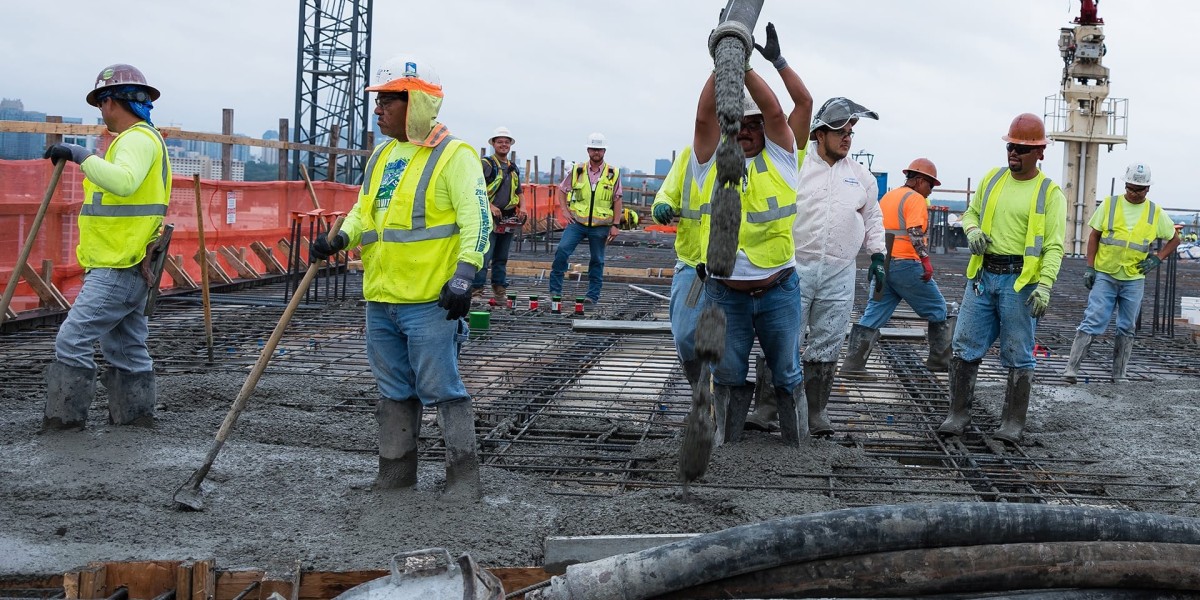When embarking on a construction project, one of the key factors that contribute to its success is effective timeline management. For cement contractors in Lubbock, TX, this involves a series of strategic planning, coordination, and execution processes. In a bustling area like Lubbock, where construction projects range from residential homes to commercial developments, understanding how cement contractors manage project timelines can significantly impact the overall quality and efficiency of a project.
The Role of Cement Contractors
Cement contractors in Lubbock, TX, specialize in various concrete applications, including foundations, slabs, driveways, and decorative concrete features. Their expertise plays a vital role in ensuring that projects are completed on time and within budget. The best concrete contractors in Lubbock not only provide quality materials and workmanship but also have the skills to manage timelines effectively.
The Importance of Project Timeline Management
Effective project timeline management is crucial for several reasons:
- Budget Control: Delays often lead to increased costs, making it essential for contractors to adhere to a strict timeline.
- Resource Allocation: Timely project completion ensures that labor, materials, and equipment are utilized efficiently.
- Client Satisfaction: Meeting deadlines helps in building trust and satisfaction among clients, which is crucial for repeat business.
- Regulatory Compliance: Many construction projects are subject to local regulations and permits that require timely completion.
Phases of Project Timeline Management
Cement contractors in Lubbock, TX, typically follow a structured approach to managing project timelines. This process can be broken down into several key phases:
1. Planning and Pre-Construction Phase
Before any concrete is poured, thorough planning is essential. During this phase, cement contractors will:
- Conduct Site Assessments: Understanding the specific conditions of the site is vital for estimating timelines accurately. Factors such as soil type, weather conditions, and existing infrastructure can affect the project.
- Develop a Detailed Timeline: Using project management software, contractors outline each phase of construction, from site preparation to the final inspection. This timeline serves as a roadmap for the entire project.
- Set Milestones: Establishing key milestones helps in tracking progress and ensures that the project stays on schedule.
2. Resource Coordination
Once the planning phase is complete, effective resource coordination is crucial. Cement contractors in Lubbock, TX, will:
- Source Quality Materials: Collaborating with local suppliers ensures that the necessary materials are available when needed. This is especially important for concrete mixes that may require specific properties for durability and aesthetics.
- Schedule Labor: Coordinating the availability of skilled laborers is essential for meeting project timelines. Cement contractors often have a roster of trusted subcontractors, ensuring that skilled workers are available when needed.
3. Execution and Monitoring
As the project progresses into the execution phase, cement contractors implement their plans while closely monitoring the timeline. This involves:
- Regular Site Inspections: Frequent assessments help identify any potential issues early on. By addressing problems promptly, contractors can prevent delays.
- Communication with Stakeholders: Keeping clients informed about progress is crucial. Regular updates and open lines of communication can mitigate concerns and enhance trust.
4. Adjusting to Unforeseen Challenges
No project goes exactly as planned. Weather conditions, material delays, or unexpected site conditions can all impact timelines. Effective cement contractors in Lubbock, TX, are prepared to adjust as needed. Strategies include:
- Contingency Planning: Having backup plans for potential delays helps contractors to pivot quickly. This could involve rescheduling work or sourcing alternative materials.
- Flexible Scheduling: Being able to adapt labor schedules to changing circumstances ensures that work can continue as efficiently as possible.
5. Final Review and Project Closure
Once the construction is complete, cement contractors will perform a final review. This includes:
- Final Inspections: Ensuring that all work meets local codes and client specifications is essential before the project is considered complete.
- Client Walkthrough: Conducting a walkthrough with the client allows for any final adjustments and ensures client satisfaction.
Best Practices for Timeline Management
To ensure effective project timeline management, cement contractors in Lubbock, TX, can adopt several best practices:
- Utilize Technology: Project management software can help in tracking timelines, resources, and progress efficiently.
- Continuous Training: Keeping teams updated on the latest construction methods and technologies can enhance efficiency.
- Strong Vendor Relationships: Building good relationships with local suppliers can lead to better pricing and faster material availability.









